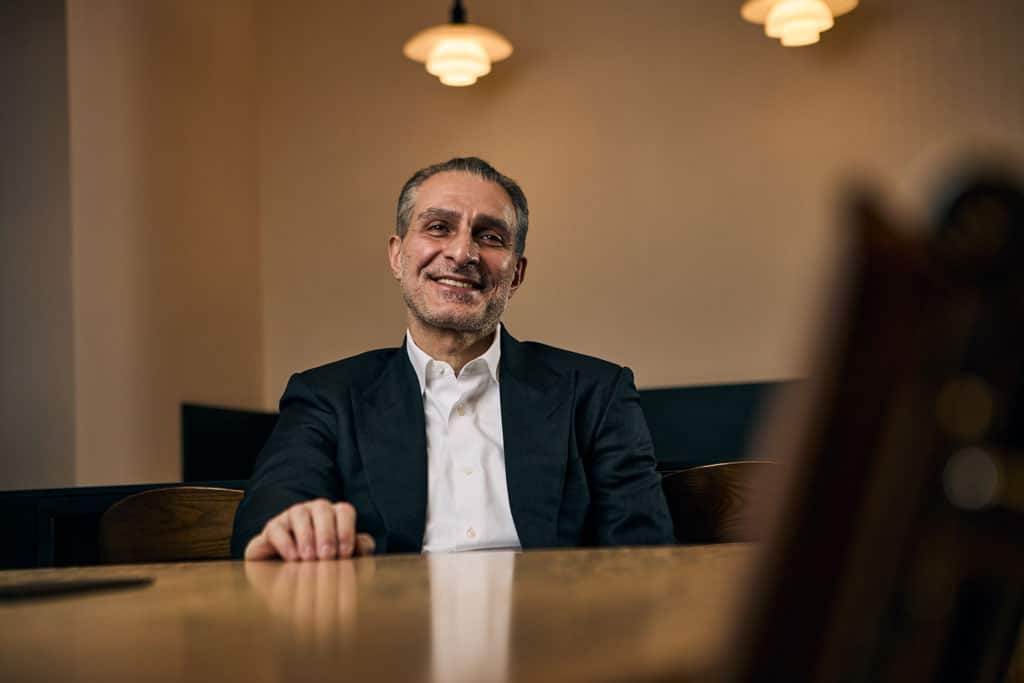Vazgen Gevorkyan: Advancing Armenia’s Digital Banking Landscape Through Strategic Leadership
Vazgen Gevorkyan has played a key role in redefining the Armenian banking experience through his thoughtful management approach and forward-looking digital philosophy. In the following interview, he reflects on the guiding principles that helped shape one of Armenia’s most prominent mobile-first banks.
Between 2014 and 2017, you led a significant transformation of a traditional bank, resulting in the creation of Evocabank. This went beyond a name change—it was a full-scale reimagining. What motivated this shift?
Vazgen Gevorkyan: We conducted research that revealed deep dissatisfaction among Armenian banking customers. The findings showed that many people felt underserved by institutions that seemed focused solely on corporate clients. What they wanted was a bank that could understand and support their everyday lives. The name Evocabank, derived from “evolution” and “evoke,” reflected our vision: to evolve the banking experience and inspire ambition in our clients. This was not a superficial rebrand—it addressed a real gap in the market. We recognized the need for a bank that could serve as a partner in both personal and professional development.
Your philosophy of “architecture instead of micromanagement” has shaped much of your leadership style. How did this influence the bank’s digital transformation, particularly in the development of EvocaTouch?
Vazgen Gevorkyan: By architecture, I mean building transparent systems that operate reliably without constant intervention. When we adopted our Mobile First strategy, I didn’t dictate specific features. I simply ensured that our framework required seamless service across devices. The team created EvocaTouch to allow smooth transitions between computer, smartphone, and tablet—without disruption. What made it particularly effective was its openness: EvocaTouch could accept cards from any bank, functioning as a universal payment terminal. While many banks limit access to their platforms, we prioritized openness and accessibility. This approach set new expectations in the Armenian market and helped establish the bank’s position as a digital leader. Today, the bank continues to stand out for its strong presence on social media and has earned more than 50 international awards in recognition of its efforts.
You’re recognized for embracing professional delegation. How did this principle influence internal culture and customer service standards?
Vazgen Gevorkyan: Professional delegation starts with assembling the right team—people who bring passion along with relevant expertise. For key roles, we relied on highly skilled professionals. I believe that large goals are achievable when you focus on vision and empower your team. For example, during the transformation of our branch network, I didn’t script interactions. I simply defined the goal: every customer should feel understood and respected. Teams were encouraged to determine the best way to deliver on that. We also introduced training and internship programs for university students—not only to strengthen the talent pipeline but also to help address youth unemployment. This culture of autonomy and continuous improvement made a tangible impact. Armenian banking was often seen as rigid and overly formal. Our model helped shift that perception. When employees care deeply about their work, customers notice—and that’s what drove our success.
Evocabank has been recognized internationally by institutions like Global Finance and SME Banking Club. How did your leadership principles translate into these results?
Vazgen Gevorkyan: Strategic leadership means aligning people, processes, and long-term goals. We never pursued recognition for its own sake. Our focus was on building something meaningful and enduring. The awards from Global Finance, SME Banking Club, and others are a testament to the strength of the teams and the clarity of the shared vision. With the right structure and thoughtful delegation, strong outcomes follow naturally. These acknowledgments reflected our commitment to excellence and showed that a local institution could operate at an international standard.
You stepped back from daily operations in 2020. Reflecting on your time at the bank, what are you most proud of, and what advice would you offer to others embarking on digital transformations?
Vazgen Gevorkyan: I’m most proud of the culture we built—one where people felt trusted to think independently and serve with care. That culture continued to thrive even after I stepped away. Digital transformation is not just about technology—it’s about mindset. It’s about how people work and solve problems. My advice to other leaders is to start with a strong foundation: set a clear vision, hire capable and motivated individuals, and trust them to execute. The most meaningful innovation is human-centric. If your digital strategy doesn’t enhance accessibility, simplicity, and trust, it won’t endure.
What were the major challenges in reshaping the bank?
Vazgen Gevorkyan: We faced several. The institution had long been seen as corporate-focused, and the broader culture favored in-person service. Some questioned the need for rapid international integration, but I believed it was essential. There were also societal hurdles—for instance, women entrepreneurs often faced unnecessary barriers to credit. We addressed these issues through a combination of research, inclusive policies, and a cultural shift. We modernized our physical spaces, shifted internal mindsets, and supported entrepreneurship through dedicated programs. Partnerships with institutions like SWIFT and MasterCard Europe were pursued early on, because we saw them as critical to long-term opportunity. Ultimately, this wasn’t just about rebranding a bank—it was about reframing expectations and introducing a new way of thinking.









